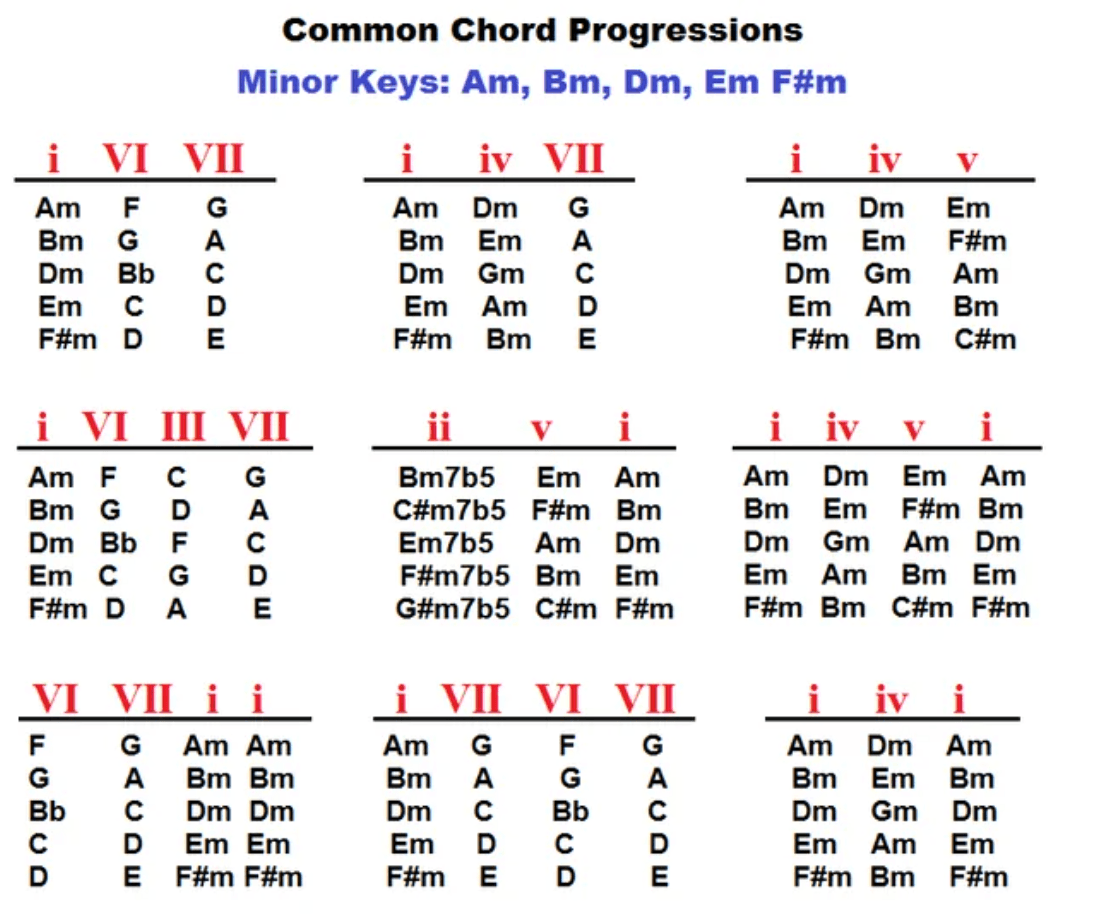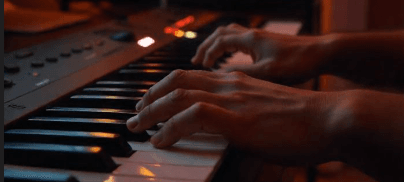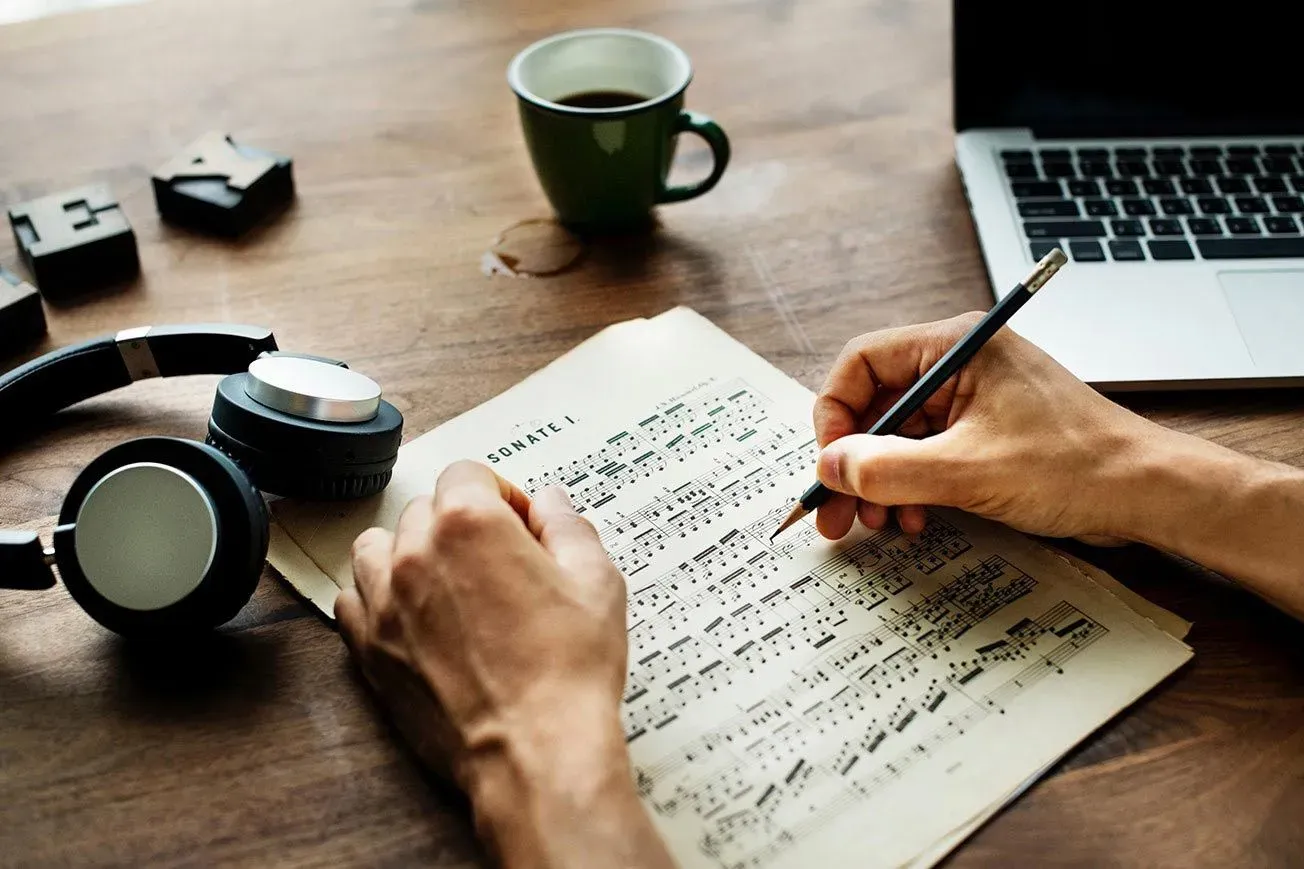Have you ever wondered about the magic behind AI generated music? It’s transforming the way we think about music creation, offering tools that spark creativity and innovation.
Let’s step into this fascinating world where technology meets melody.
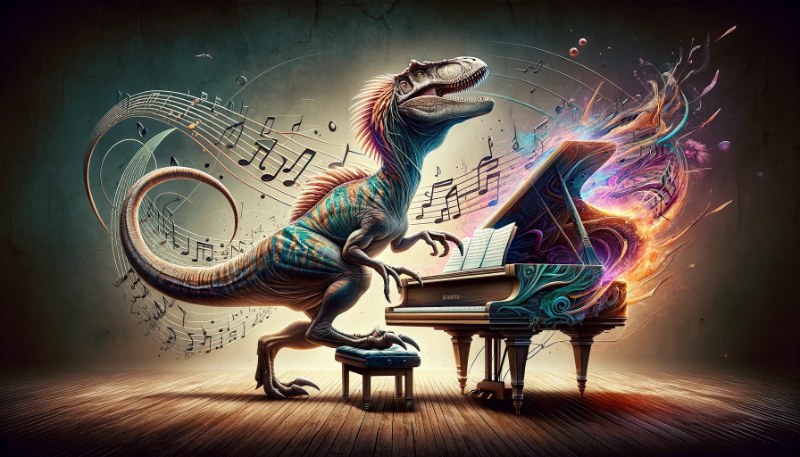
The History of AI in Music Production
The journey of AI in music production is a fascinating tale of technological advancement and creative exploration.
Although it's a prominent topic today, the roots of AI in music trace back to the mid-20th century.
These early stages were marked by experimental forays into using computers for musical purposes, a stark contrast to the sophisticated audio AI tools we see today.
What is AI Generative Music?
AI generative music is a groundbreaking concept in the realm of music production, representing a synthesis of technology and creativity.
It involves using advanced AI music tools to create music that is both innovative and reflective of vast musical traditions and patterns.
This form of music creation is about augmenting and expanding the creative possibilities available to musicians and composers.
Also: Check out these Top 5 AI Music Generators That Will Change The World In 2024
The Mechanism Behind AI Generative Music
At its core, AI generative music is based on the analysis of extensive music data. AI algorithms are trained on vast libraries of music across various genres and styles.
These algorithms, often powered by machine learning and neural networks, absorb patterns, structures, and elements of music composition from this data.
They learn how different musical elements like melody, rhythm, harmony, and tempo interact to create cohesive and appealing pieces of music.
Once trained, these AI systems can generate music based on specific parameters or inputs.
For instance, a composer might ask the AI to create a piece in a particular style, such as classical or jazz, or to adhere to certain emotional tones like 'melancholic' or 'upbeat'. The AI then utilizes its learned knowledge to generate music that aligns with these instructions.
The Role of AI in Enhancing Musical Creativity
The beauty of AI generative music lies in its ability to offer a new palette for creativity. These AI tools are not creating music in a vacuum; they require human input to guide the creative process.
Musicians and composers can use these tools to explore new musical territories, experiment with different styles, or even break through creative blocks.
AI-generated music can serve as a source of inspiration, a starting point from which human artists can further develop and refine the piece, adding their unique touch.
The Pioneering Era: Early Experiments
In the 1950s and 1960s, the concept of using computers to create music was groundbreaking. One of the earliest instances was the Illiac Suite, composed in 1957 by Lejaren Hiller and Leonard Isaacson, which is often cited as the first piece of music composed by AI.
These early experiments primarily focused on algorithmic composition, where basic melodies were programmed using rudimentary computational methods.
This era laid the foundational understanding of how computers could be applied to the creative process of music production.
Advancements and Mainstream Acceptance
As technology progressed, so did the capabilities of AI in music.
The 1980s and 1990s saw more advanced programming languages and systems being developed, allowing for more complex compositions.
This period also marked the beginning of digital audio workstations (DAWs), which started to integrate elements of AI to aid composers and producers.
These tools began as simple MIDI (Musical Instrument Digital Interface) sequencers but gradually evolved to include AI-driven features like automatic chord generation and rhythm creation.
Today's Sophisticated AI Music Tools
Fast forward to today, and AI in music production has taken a quantum leap. Modern audio AI tools can analyze extensive music databases, learn from patterns and styles, and compose complex pieces with a level of sophistication that rivals human composers.
These tools extend beyond mere composition, encompassing a range of audio production aspects such as mixing, mastering, and sound design.
The role of AI in music has evolved from an experimental venture to an essential component in the process of creating music.
Notable Artists in AI Music
The incorporation of Artificial Intelligence in music has ushered in a new breed of artists leading the charge in this combined technological and creative revolution.
These artists, transcending the boundaries of specific genres and styles, vary from electronic music producers to classical composers, each delving into the distinct possibilities that AI introduces to their creative journey.
The Emergence of Virtual DJs and AI Collaborations
A notable example in the realm of electronic music is the collaboration between Sensorium’s VR platform and Mubert in the album "Anthropic Principle" by Kàra Màr. This album, comprising 50 diverse pieces, is the first by a social AI musician and is available on Spotify.
It showcases the innovative use of AI in music creation, with each track varying in length and embodying abstract themes, an AI music-generating platform.
This partnership has led to the creation of virtual avatar DJs that play AI-generated music. These virtual DJs are capable of autonomously creating a constant flow of ever-changing music, adapting to various moods and environments.
Such innovation demonstrates how AI can not only assist in music creation but also revolutionize the way music is experienced and consumed.
Indie Musicians Embracing AI
On the other side of the spectrum, indie musicians are also harnessing AI to push the boundaries of their music, such as in the album YONA by Ash Koosha and Isabella Winthrop.
YONA is an “auxiliary human” powered by AI and digital technology. Koosha, a British-Iranian composer, has been a significant figure in technologically influenced music, introducing innovative concepts like virtual reality albums. YONA's lyrics, chords, and voice are all results of generative software, offering a distinct style synthesized from human producers and songwriters' ideas
These artists use AI as a tool to compose, generate new sounds, or even to collaborate with. AI algorithms can provide a starting point or a completely new perspective for a piece of music, allowing these artists to explore uncharted sonic territories. These collaborative capabilities is leading to the creation of music that is innovative and diverse.
AI as a Partner in the Creative Process
The common thread among these innovators is their approach to AI as a collaborative ally in the creative process.
Rather than viewing AI as a substitute for human ingenuity, they regard it as a novel instrument or tool that opens up new perspectives and opportunities.
These artists demonstrate how AI can significantly enhance the music creation process, whether by sparking new ideas, aiding in composition, or performing music within virtual settings.
The Future of AI in Music: Education and Inspiration
The incorporation of Artificial Intelligence (AI) in the music industry is revolutionizing not only music creation but also profoundly impacting music education and acting as a powerful source of inspiration for artists.
Looking ahead, the influence of AI in these domains is expected to grow, providing innovative and impactful methods for learning, creating, and pioneering new paths in the music world.
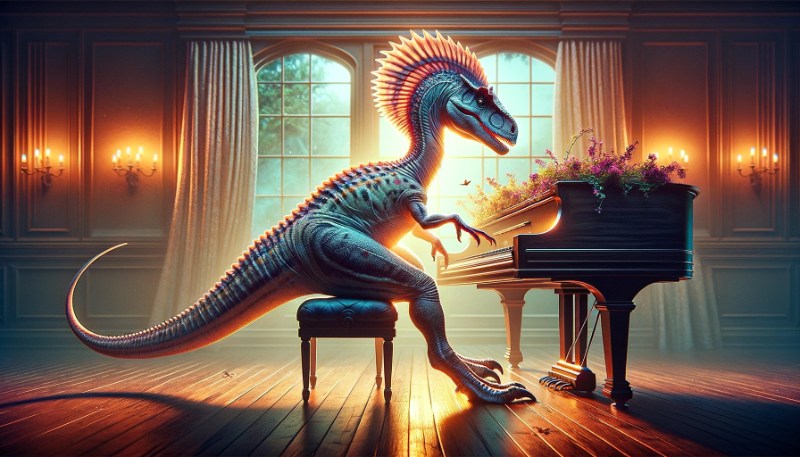
AI in Music Education: A New Learning Paradigm
In the educational sphere, AI is revolutionizing the way music is taught and learned. Interactive learning tools powered by AI are emerging, offering personalized and adaptive learning experiences.
These tools can analyze a student's performance, provide instant feedback, and tailor lessons to suit their individual learning pace and style.
For instance, applications powered by AI can analyze a student's instrumental performance, offering immediate feedback on elements such as rhythm, pitch accuracy, and timing.
This approach not only enhances the engagement in learning but also speeds up the educational process by concentrating on the individual requirements of the student.
AI as a Source of Creative Inspiration
For musicians and composers, AI is becoming an invaluable source of inspiration. It assists in overcoming creative blocks by suggesting chord progressions, melodies, and even song structures based on the artist's inputs and preferences.
This proves especially beneficial for artists seeking to delve into unfamiliar genres or styles. AI tools, by analyzing extensive collections of music across diverse genres, utilize this vast knowledge to either recommend or compose new pieces.
This provides artists with a foundational base or fresh viewpoint for their musical creations.
Expanding Musical Horizons
Furthermore, AI in music is enabling artists to explore and create in ways that were previously unimaginable. From generating unique sounds and textures to creating entire compositions, AI is expanding the creative horizons for artists.
This not only enriches the artists' own creative arsenal but also contributes to the diversity and richness of the music industry as a whole.
Elevate Your Music with Empress
Empress stands out as an AI music tool that offers musicians, both seasoned and aspiring, a suite of AI-powered features for chords, melodies, and lyrics generation. It’s not just about making music quicker; it’s about making it more expressive and personalized!
FAQs: AI in Music
Q1: How does AI contribute to music production?
AI enhances music production by offering new ways to generate melodies, harmonies, and rhythms, aiding in creative processes.
Q2: Can AI music tools understand emotions in music?
AI tools can analyze and replicate patterns that convey certain emotions, though the human touch is still vital in giving music its soul.
Q3: Is AI-generated music customizable?
Absolutely! AI tools can generate music based on specific inputs, styles, and preferences, making each piece customizable.
Q4: How accessible are AI music tools for beginners?
Many AI music tools are user-friendly, making them accessible for beginners while still offering advanced features for professionals.
Q5: Can AI music tools help in learning music?
Yes, AI tools can be excellent aids in music education, providing interactive and personalized learning experiences.
Follow the future of music with Empress. Check out our blog to learn how you can effectively use these AI music tools.
